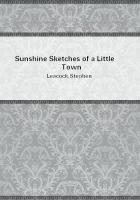If she had dared to think of it so crudely she would have said that Fanny was afraid of her, afraid of something she might say or do, even as for their few brief seconds Amerigo and Charlotte had been--which made exactly an expressive element common to the three. The difference however was that this look had in the dear woman its oddity of a constant renewal, whereas it had never for the least little instant again peeped out of the others. Other looks, other lights, radiant and steady, with the others, had taken its place, (104) reaching a climax so short a time ago, that morning of the appearance of the pair on the balcony of her house to overlook what she had been doing with her father; when their general interested brightness and beauty, attuned to the outbreak of summer, had seemed to shed down warmth and welcome and the promise of protection. They were conjoined not to do anything to startle her--and now at last so completely that, with experience and practice, they had almost ceased to fear their liability.
Mrs. Assingham on the other hand, deprecating such an accident not less, had yet less assurance through having less control. The high pitch of her cheer accordingly, the tentative adventurous expressions, of the would-be smiling order, that preceded her approach even like a squad of skirmishers, or whatever they were called, moving ahead of the baggage-train--these things had at the end of a fortnight brought a dozen times to our young woman's lips a challenge that had the cunning to await its right occasion, but of the relief of which, as a demonstration, she meanwhile felt no little need. "You've such a dread of my possibly complaining to you that you keep pealing all the bells to drown my voice; but don't cry out, my dear, till you're hurt--and above all ask yourself how I can be so wicked as to complain.
What in the name of all that's fantastic can you dream that I have to complain OF?" Such enquiries the Princess temporarily succeeded in repressing, and she did so, in a measure, by the aid of her wondering if this ambiguity with which her friend affected her would n't be at present a good deal like the ambiguity with which she herself must frequently (105) affect her father. She wondered how she should enjoy on HIS part such a take-up as she but just succeeded from day to day in sparing Mrs. Assingham, and that made for her trying to be as easy with this associate as Mr. Verver, blessed man, all indulgent but all inscrutable, was with his daughter.
She had none the less extracted from her a vow in respect to the time that if the Colonel might be depended on they would spend at Fawns; and nothing came home to her more in this connexion or inspired her with a more intimate interest than her sense of absolutely seeing her interlocutress forbear to observe that Charlotte's view of a long visit even from such allies was there to be reckoned with.
Fanny stood off from that proposition as visibly to the Princess, and as consciously to herself, as she might have backed away from the edge of a chasm into which she feared to slip; a truth that contributed again to keep before our young woman her own constant danger of advertising subtle processes. That Charlotte should have begun to be restrictive about the Assinghams--which she had never, and for a hundred obviously good reasons, been before--this in itself was a fact of the highest value for Maggie, and of a value enhanced by the silence in which Fanny herself so much too unmistakeably dressed it. What gave it quite thrillingly its price was exactly the circumstance that it thus opposed her to her stepmother more actively--if she was to back up her friends for holding out--than she had ever yet been opposed; though of course with the involved result of the fine chance given Mrs. Verver to ask her husband for explanations. Ah (106) from the moment she should be definitely CAUGHT in opposition there would be naturally no saying how much Charlotte's opportunities might multiply.
What would become of her father, she hauntedly asked, if his wife, on the one side, should begin to press him to call his daughter to order, and the force of old habit--to put it only at that--should dispose him not less effectively to believe in this young person at any price? There she was, all round, imprisoned in the circle of the reasons it was impossible she should give--certainly give HIM. The house in the country was his house, and thereby was Charlotte's; it was her own and Amerigo's only so far as its proper master and mistress should profusely place it at their disposal.
Maggie felt of course that she saw no limit to her father's profusion, but this could n't be even at the best the case with Charlotte's, whom it would never be decent, when all was said, to reduce to fighting for her preferences. There were hours truly when the Princess saw herself as not unarmed for battle if battle might only take place without spectators.















